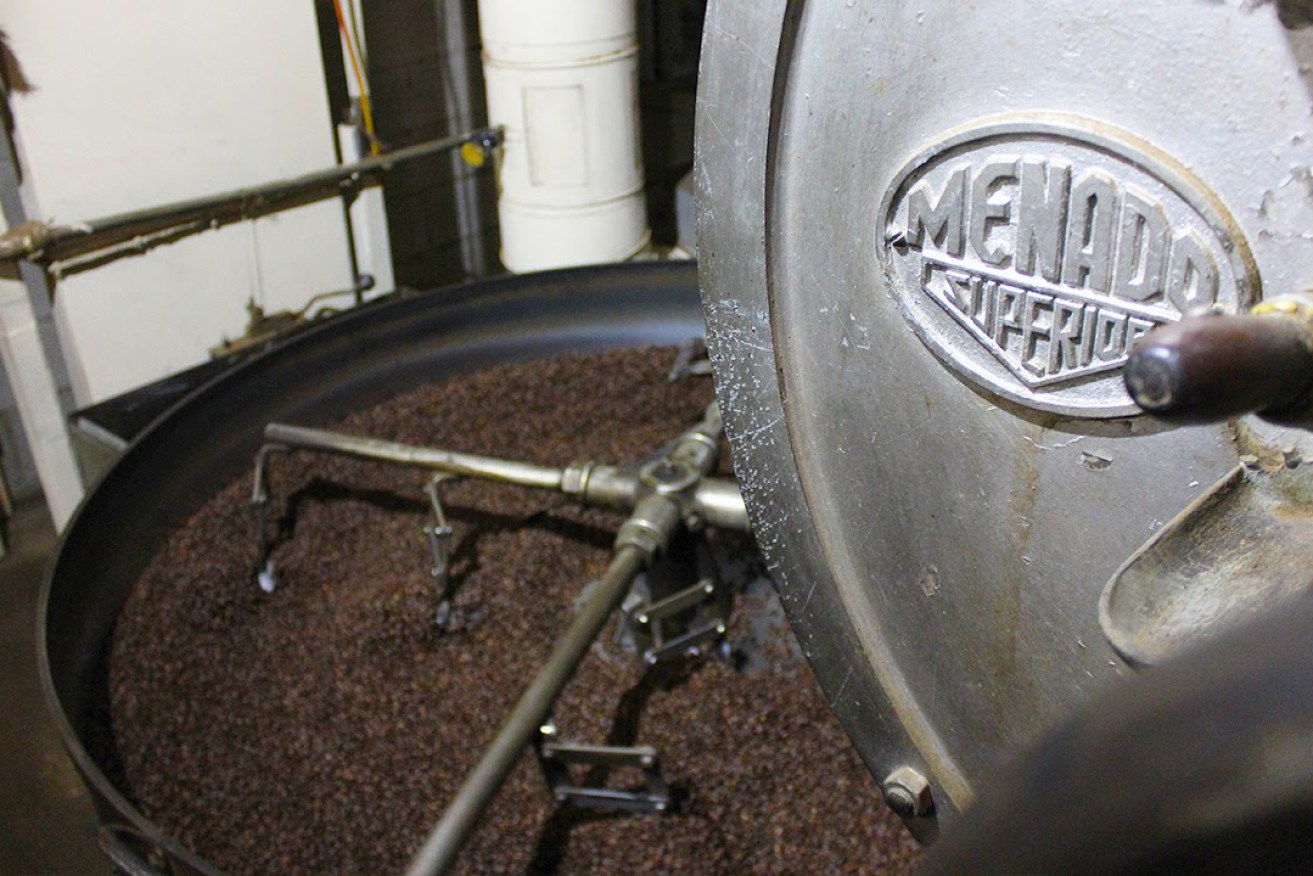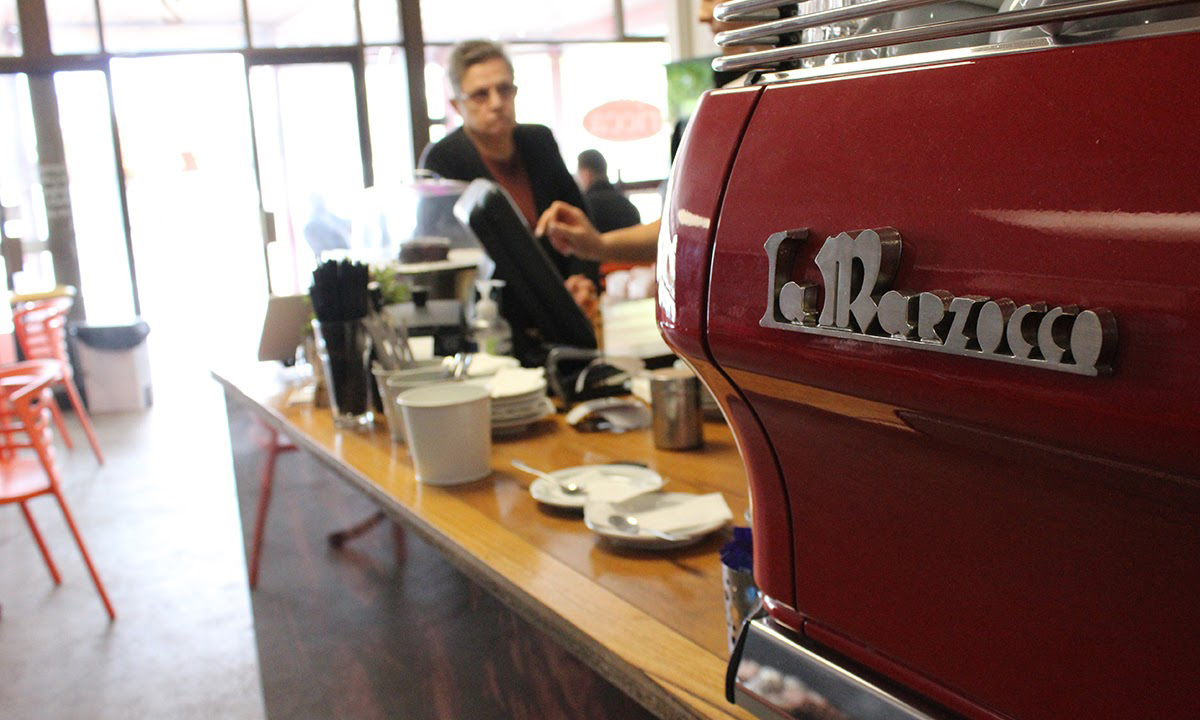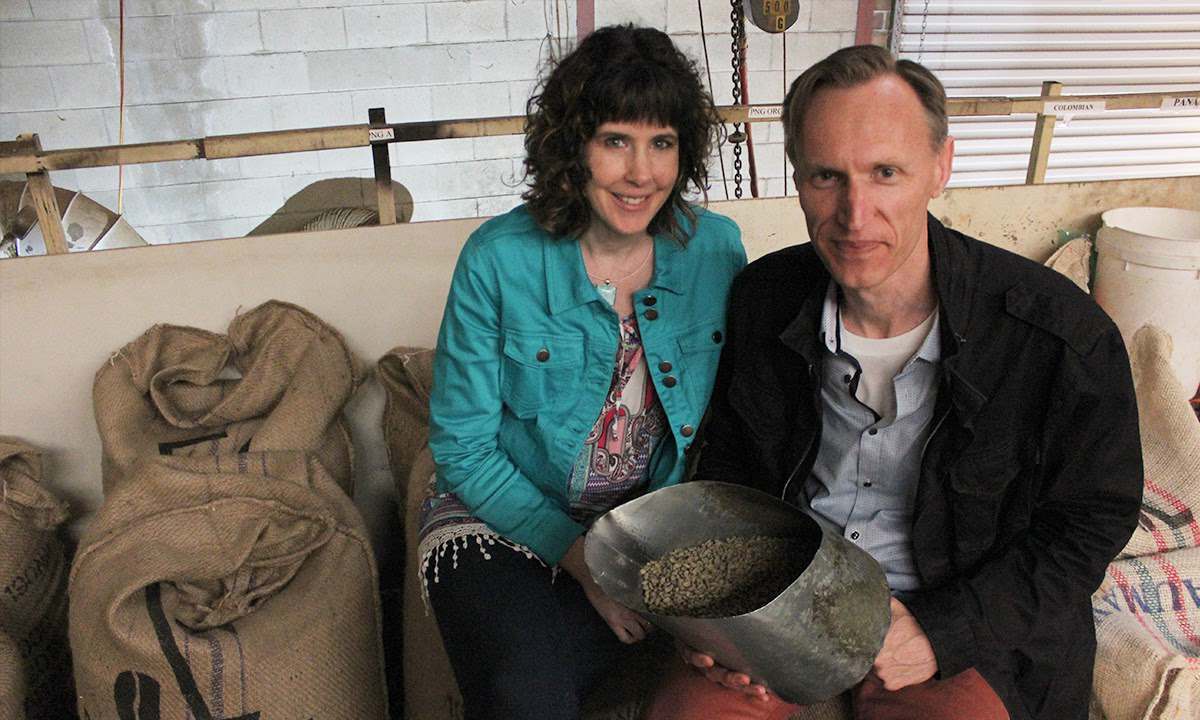Reviving a coffee tradition at Ricca
One of Adelaide’s original coffee brands is set for reinvigoration under the direction of new owners.


Coffee beans in the Menado roaster.
Established during the 1970s, Ricca is one of Adelaide’s first commercial coffee roasteries.
Martyn and Anne Smith bought the Thebarton-based factory, cafe and retail outlet in June, inheriting a building full of vintage roasting and grinding equipment and even an experienced roaster – John Zaouris – “who came with the deal”.
While continuing to roast up to 20 different single-origin and blended coffees under the Ricca and Goat Candy brands, the Smiths are now evaluating what should be preserved and what should be updated.
Martyn is a former accountant and Anne a nurse, but they have experience in hospitality through previously running a coffee house in Adelaide’s northern suburbs that focussed on fair trade coffee.
“I used to be a bean counter but now I am a bean counter,” Martyn jokes.
“I have now gone into Ricca full time, which suits my passions and skill set.”
He says Ricca was established by “an Italian migrant family who saw a need to roast and sell batch coffee on the west side of the city – Rio was already on the east side”.
The Smiths intend to maintain the company’s Italian traditions and name.
“Ricca has also got a strong following from the Lebanese, Greek and Turkish communities for its rich, dark and full style of traditional Mediterranean coffee,” Martyn says.
“We sell it ground and ready to go. It’s also used for Vietnamese coffee – Vietnam Restaurant at Pennington is one of our regular clients.”
Ricca’s café and retail outlet is simple and vibrant, with local workers and visitors drinking espresso coffees, buying bags of beans and Nespresso pods – everything that’s available for purchase is also available as an espresso coffee – and enjoying the substantial food menu.

Ricca cafe interior. Photo: Jordan Patrick
The Goat Candy brand was established by the business’s previous owner of 11 years, Gary Brown, who wanted to offer an alternative to the Ricca brand that would be in keeping with the trend towards lighter roasts.
“The Goat Candy brand feeds into that style that seeks all the citrus and chocolate qualities of the lighter roasts, but the interesting thing is I’m seeing the traditional Ricca coffee style now being sought after by some of our younger clients,” says Martyn. “I get a sense that the pendulum is swinging back the other way.”
Out the back on the factory floor, the circa-1960 German Menado drum roaster is a big feature. While Zaouris is still using it to dry and “de-stone” the roasted beans before packing, the old cast-iron roaster hasn’t been used for roasting beans for eight years and is about to find a new home interstate.
To roast the beans, Zaouris now uses a modern airbed or “flow” roaster, “which is like a popcorn maker on steroids”.
Stacked around the periphery of the factory floor are bulging hessian sacks stencilled with information identifying their South American, African and Vietnamese origin, handmade tin storage vessels and a plethora of obsolete supermarket-aisle coffee grinders.

Anne and Martyn Smith. Photo: Jordan Patrick
“There are also drawers of physical customer cards which date back to the late 1980s,” says Martyn. “I still need to refer to them for contacts, quantities and other details.”
Martyn says Ricca is currently roasting around 550 kilograms of coffee each week, but is hoping to ramp that up to 1.5 tonnes and to develop the supply of fair trade and organic beans.
“We plan to work our way through the whole business by updating some equipment, tweaking the menu, and next on the list is our online presence.
“Longer term, we’re thinking about opening up the inside of the building so that café customers can feel more connected to the roastery.”
But for Martyn, sustainability is the real appeal of the business.
“I feel compelled to honour Ricco’s heritage and history by continuing to supply Ricco’s traditional clients as well as to develop direct trade with producers on the other side of the world.
“I am currently able to track each sack of beans to a real community and know that the purchase of those beans is making a real impact there.
“Physically meeting those farmers in person is something that I hope to do in the future.”




